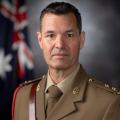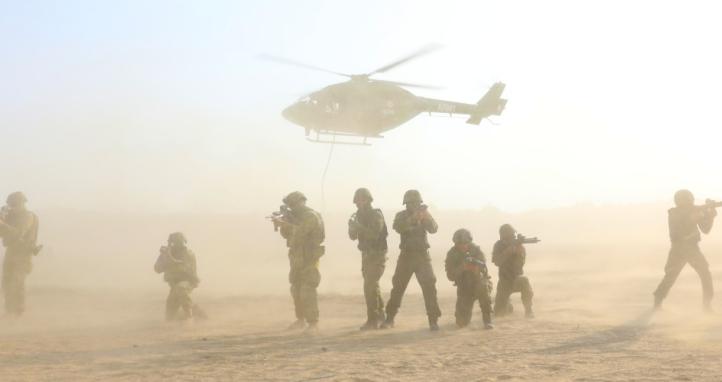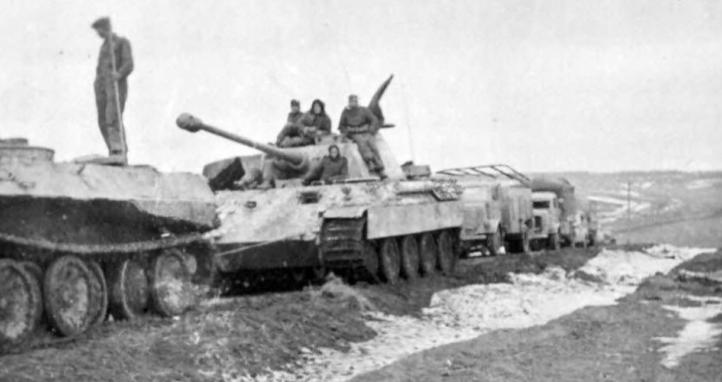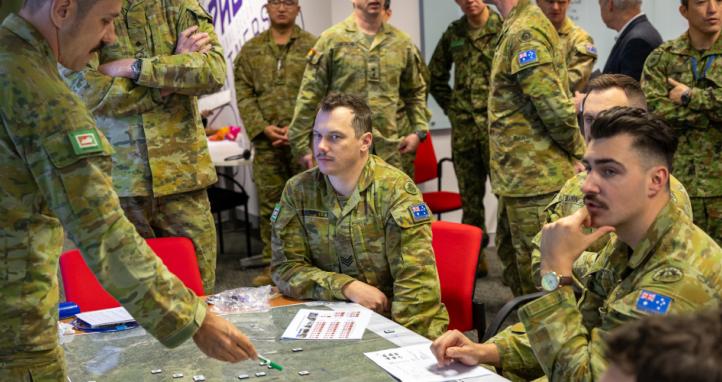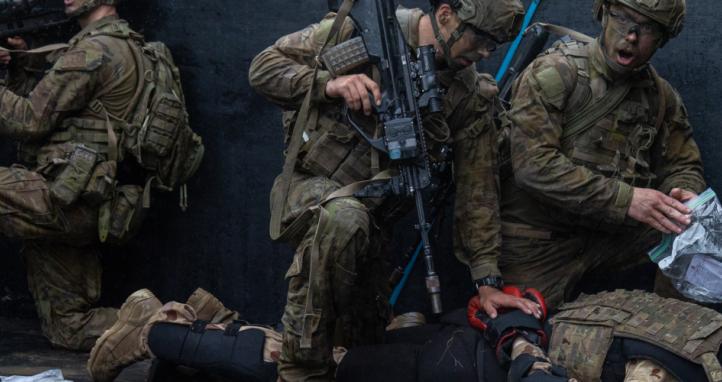Could the defence principles we need to meet regional threats come from the other side of the world?
Some moments only happen in Canberra. Like when you drop over to say hello to your next-door neighbours, and they invite you to send fighter jets to their country.
I try to say "Hi" to people here in Barton. A nod to the Australian Strategic Policy Institute (ASPI) bods over the road (they reply with a searching gaze). "Salam" to the lady at the fantastic new kebab shop (I recommend the lamb).
And "Sveiki" to the Lithuanians at number 53. They established their embassy a few months ago. I recently met a Lithuanian Army officer, who uses the software my company makes, so, I had news to tell. But it was me who did the learning.
Within seconds of meeting Ambassador Darius Degutis, I came to understand many things about Lithuania. Like why they medal in basketball every Olympics. I am tall, but he towers like a spruce.
Darius invited me in for coffee and zagareliai, crunchy pastries made from mountains of sugar and plenty of fat. I asked about life in Lithuania. He mentioned how his country shares a border with an authoritarian bully, who has recently invaded another neighbour and has the world’s largest arsenal of nuclear weapons.
That concentrated my mind.
The Ambassador, however, kept smiling and chatting, about all the things Lithuania has in common with Australia.

NATO Enhanced Forward Presence in February 2022 / LTU Army
Which seemed odd. By my geography, you cannot go much further from Australia than Lithuania. It is smaller than our smallest state, with a population just 10% of ours. We are not famous for basketball, and we are sparse on spruce. However, both our countries are passionate about liberal democracy and sovereignty - especially given the emerging environment.
For Lithuania, threats from the local stand-over-man started decades ago. In 1990, Lithuanian lawmakers voted to re-establish themselves a nation state. To help change their mind, Russia cut off vital supplies of gas, oil, and electricity. Then last year, the Ambassador solemnly admits, China squeezed Lithuania with an embargo: because it allowed a Taiwan Representative Office to open.
In both cases, Lithuania was not for turning. Listening to Ambassador Degutis, it dawned on me: this small nation has stared down many of the crises we face today. So, this tiny Baltic nation has big lessons for us Australians. Four by my count.
Lesson one: independence starts with trade
Lithuania realised early that they could not be free if they were dependent on an authoritarian state for their imports and exports. Until recently, they imported 100% of their energy needs from Russia, from gas to electricity. It gave Russia a stranglehold.
Their road to freedom began with trade – and the Ambassador had the fortune of watching this happen, in his first job out of university. He was doing office admin for the Lithuanian Chamber of Commerce. Part of his job was to check the telex. One night, the machine rattled out a message from the Chamber of Commerce over in Denmark. Two of their representatives would be arriving at Vilnius – could someone meet them at the station?
Strategic alliances often begin with a personal relationship. That meeting at the station led to Denmark being the second country to recognise Lithuania as an independent nation (Iceland was the first). This opened new trade relationships across the world. And, in time, defence partnerships. Trade infrastructure ensures sovereignty too. Lithuania built their own liquified natural gas (LNG) and oil terminals, sourcing energy from Norway, the UAE, and the USA. This radically reduced their reliance on Russia, dropping from 100% dependence for energy, to zero. The chokehold was broken.
The Ambassador was far too polite to draw out the lesson for us Australians. But I think it’s obvious. I remembered how David Uren, from over the road at ASPI, discovered that Australia, of all the Five Eyes nations, is the most dependent on China for trade. I took the point. But there was more to learn.
Lesson two: small, free nations need big military reserves
After Russia first invaded Ukraine, Soviet tanks and soldiers fired live rounds into Lithuanian protestors in the 'January Events' of 1991. Darius was a frightened twenty-something on the streets of Vilnius at the time. He and his friends had no armed forces to protect them. None. In the years that followed, they managed to raise a force of 10,000 warfighters. Barely a speedbump to attacking Russian forces, which peaked at 1.9 million.
War has a way of clearing the mind. As the Russo-Ukrainian War began in February 2014 – when Darius Degutis was serving as the Ambassador in Israel, a nation where half of all citizens serve in the defence force – the government of Lithuania introduced conscription. So, when you leave school, you do nine months’ full time in the army. After those nine months, you can do what you want, although the nation can call you to serve in times of war.
Today, Lithuania has 22,000 warfighters on active service and 100,000 Reservists. They achieved that in seven years. Their Reserve Army is as large as the entire Australian Defence Organisation hopes to be by 2040, and we are a nation with ten times their population.
The Ambassador beamed saying this; as pleased as a point guard making a slam dunk. His nation’s reserves are well trained, equipped, numerically strong, and – crucially – at the centre of their army. If his country ever faces a Ukraine type situation, these reserves will form the core of their defence. They already know how to shoot. They know tactics. They know how to command. They know how to lead. They know how to fire artillery. From a population of 2.7 million people (about the population of Brisbane), they have a defence organisation that is bigger than ours.
Ambassadors do not tell their host countries what to do, but, since I am a Reservist, I figured out the tip. Australia’s Reservist numbers are going backwards, right when we need them to build. Currently, Reservists do not deploy overseas as formed units, nor are they ‘trusted’ with artillery, helicopters, or armoured vehicles. Could part of the recruitment and retention problem be that we do not value our Reserve soldiers, sailors, and aircrew enough?
As the Ambassador talked force structure, I did the numbers in my mind, and realised that even if Australia did introduce conscription, we would never have infantry numbers to compete with great power adversaries to our north, where active personnel numbers are in the millions. Their warships number 500 to our 50. Which brings us to the most valuable part of the Lithuanian tutorial on defence.
Lesson three: alliances are the force multiplier small nations need
When the Kremlin announced they would be moving nuclear missiles closer to the Baltics in April, "to rebalance the situation" of NATO expansion, Lithuanians did not blink. They worked even harder to bring Finland and Sweden in.
Lithuanians understood early they can never match the military force of the Russians. To borrow a phrase from one strategist I admire, Brigadier Ian Langford, they knew they needed "to offset quantitative inferiority". Indeed, they did.
Just six months after the last Russian T-72 pulled out of Vilnius, Lithuania formally requested membership to NATO. This was denounced. Not just by Russian President Boris Yeltsin. American leaders like Senator Bernie Sanders said "we ought to have our heads examined" for even considering Lithuania.
Lithuania pushed on, gathering ten NATO applicants from the Baltic and the Balkans. They were formally welcomed into NATO with full membership in 2004. The Ambassador organised the NATO summit in Vilnius the next year.
The Ambassador is all about working alliances, where each other’s tank crews and soldiers can share orders and information; what is known as interoperability. In the last few weeks, they hosted Exercise Iron Wolf 22, a military exercise with heavy armour, warplanes and 3,500 troops from 14 allies and partners. President Gitanas Nausėda himself extended his welcome to an officer who came from the other side of the world, Australia.

Seven partner forces joined Exercise Iron Wolf, 11th Rotation / LTU Army
Lithuania is massing alliances on the sea too. After Iron Wolf, they conducted naval exercises with 16 allies and partners, with over 45 ships, more than 75 aircraft and 7,500 personnel. There’s a permanent NATO presence of F-35s in the old garrison city of Šiauliai. The Italian Air Force contributed in 2021, the US Air Force is there now. The Ambassador says he’d like to have RAAF fighters there in the future.
Australia has been furiously building alliances for the strategic offset we need. The AUKUS alliance was a breakthrough. The Quad has great promise. The Five Power Defence Agreement could be stronger. And while we are a NATO 'Enhanced Opportunities Partner', there are still barriers to keep us from closely operating together. As my boss in Denmark says, these alliances need to be active and interoperable, "otherwise it’s just chit chat".
Whew. The coffee was finished, but the class in geopolitics came with a coda, about the power of memory.
Lesson four: to keep the future safe, revive national memories
Darius talked about life under authoritarian states. When St Casimir’s, the fine Baroque church in the centre of Vilnius, was turned into a museum for atheism, and Lithuanians could not celebrate Christmas or Easter. He remembers the fear of the 'January Events' when the Red Army killed 14 unarmed Lithuanians. His language, at this point, was undiplomatic.
However, the Lithuanian Defence Force today is mostly young men, and those guys have little memory of communist oppression. People have now enjoyed 32 years of democracy and freedom. If national memories fade, the urgency of national defence could fade too.

New conscripts complete warrior course, October 2021 / LTU Army
So, the Lithuanian government invests in memories, even the hard ones. They restored the KGB building in the centre of Vilnius, with its torture cells and execution chambers, preserving thousands of documents that covered the 50-year Soviet occupation. Darius went through the memories it holds. The 150,000 Lithuanians exiled to the gulags by the Soviets. The 190,000 Jews killed by the Germans – and Lithuanian collaborators – in the years they took occupation. The 80,000 killed in the years up to 1991, at least 1,000 just in that old KGB building. As the Ambassador puts it bluntly, "That’s how we know what Ukraine is going through today, because that’s what we went through." Small wonder it was Lithuania who sent ammunition and Stinger anti-tank missiles to Ukraine, even before the Russians rolled in. By the end of May, this shrub of a country had sent a soaring €120 million in lethal aid.
Lithuanian support for Ukrainian defence is not just government policy. It is heartfelt. A local journalist recently started a crowdfund to buy a Bayraktar attack drone from the Turkish government for the defenders of Ukraine. Donations came in, mostly in sums of a few hundred euros, from teachers and old age pensioners. The full amount, €5.8 million, was raised in three days.
Perhaps the memories of Lithuanian people are working well after all. But I wonder about us Australians. We feel, like the Midnight Oil song, “our country was never in flames". We’ve all but forgotten the Death Marches from the last time war came to our shores. To jolt us out of our amnesia, we need immigrants and ambassadors like Darius, who have come from oppressive countries. And we need to listen to them.
We need to recruit them into our national defence conversation. Because these are the people who have a sense of urgency. The Lithuanians did not wait until the bear stirred. They got ready ten years before.





